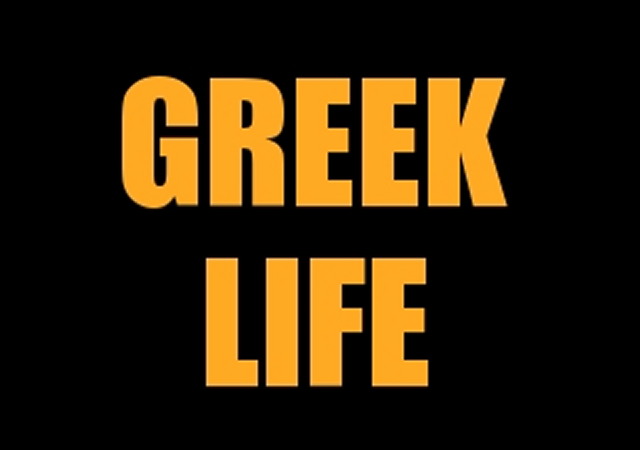Fraternity Members Earn More After School, Despite Having Lower Grades
“joining one looks like a perfectly rational decision”

The unfair fraternity stereotype is a football watching, beer chugging jock who is uninterested in much else. But they tend to do better than others after graduation.
Bloomberg reports:
The Fraternity Paradox: Lower GPA, Higher Incomes
Tragedies at college fraternities never seem to be out of the spotlight for very long.
Four men pleaded guilty in May in the beating death of a Baruch College freshman during a kind of racial-awakening ritual at an Asian fraternity. At Louisiana State University, a student died after a drinking game. A few weeks ago, a judge told 14 members of a now disbanded Penn State fraternity that they would not have to stand trial for involuntary manslaughter (the most serious charge) in the hazing death of a pledge, Timothy Piazza. Security cameras recorded the students’ cruelty and indifference to Piazza as he lay dying.
You might think that more and more parents are advising their sons to steer clear of fraternities. Instead, these associations seem to be more popular than ever. And no matter how many critics — liberal and conservative — condemn fraternity culture, joining one looks like a perfectly rational decision.
Let’s start with studies showing that fraternity members tend to earn more money after college than other graduates do, even if the record shows their grades aren’t as good. That’s quite a tradeoff: Slack off in class, party more — then still earn more money. Sign me up!
Yes, there is likely a selection factor at work. Students who want to join fraternities and whom fraternities want to recruit may start out with social and economic advantages. They could be naturally gregarious, confident, maybe better looking than average. They might not have to work part time or pinch pennies, as many other students do.
Donations tax deductible
to the full extent allowed by law.








Comments
No surprise there – getting a job, good or otherwise, is more about who you know than it is about what you know…
…which explains why so many of us can’t find jobs. We don’t have connections.
Yeah, this is about networking…of course, the liberal writer has to make this about pedigree and fit the data to his/her worldview.
Not to disparage the value of connections and networking, but this might also make one ask if there is a valid link between GPA and success in life. We all know (or should know) that there is a working-the-system component in a high GPA, from dodging hard courses to selecting “easy” professors.
Or, as the article points out, it may have nothing to do with networking or connections. It may simply be that the personality traits that make a person interested in joining a frat, and that make frats interested in recruiting the person, also help the person succeed later in life. In other words, frat members would have done just as well had they, for some reason, not joined their frat, while non-frat-members would gain nothing from joining.
Think of the finding that the reason Ivy League graduates are more successful than those of other universities is not because their education is better but because they choose the best students in the first place. People who are accepted into these universities but choose to go elsewhere end up just as successful as those who do go there. People who wouldn’t normally qualify but are accepted for extraneous reasons such as quota-filling gain no benefit.
Who ya know probably makes up for a large proportion of the effect. But the social experience was more educational and beneficial than ANY several Liberal Arts classes. I’d say it’s a critical piece to Lib Arts education 😉